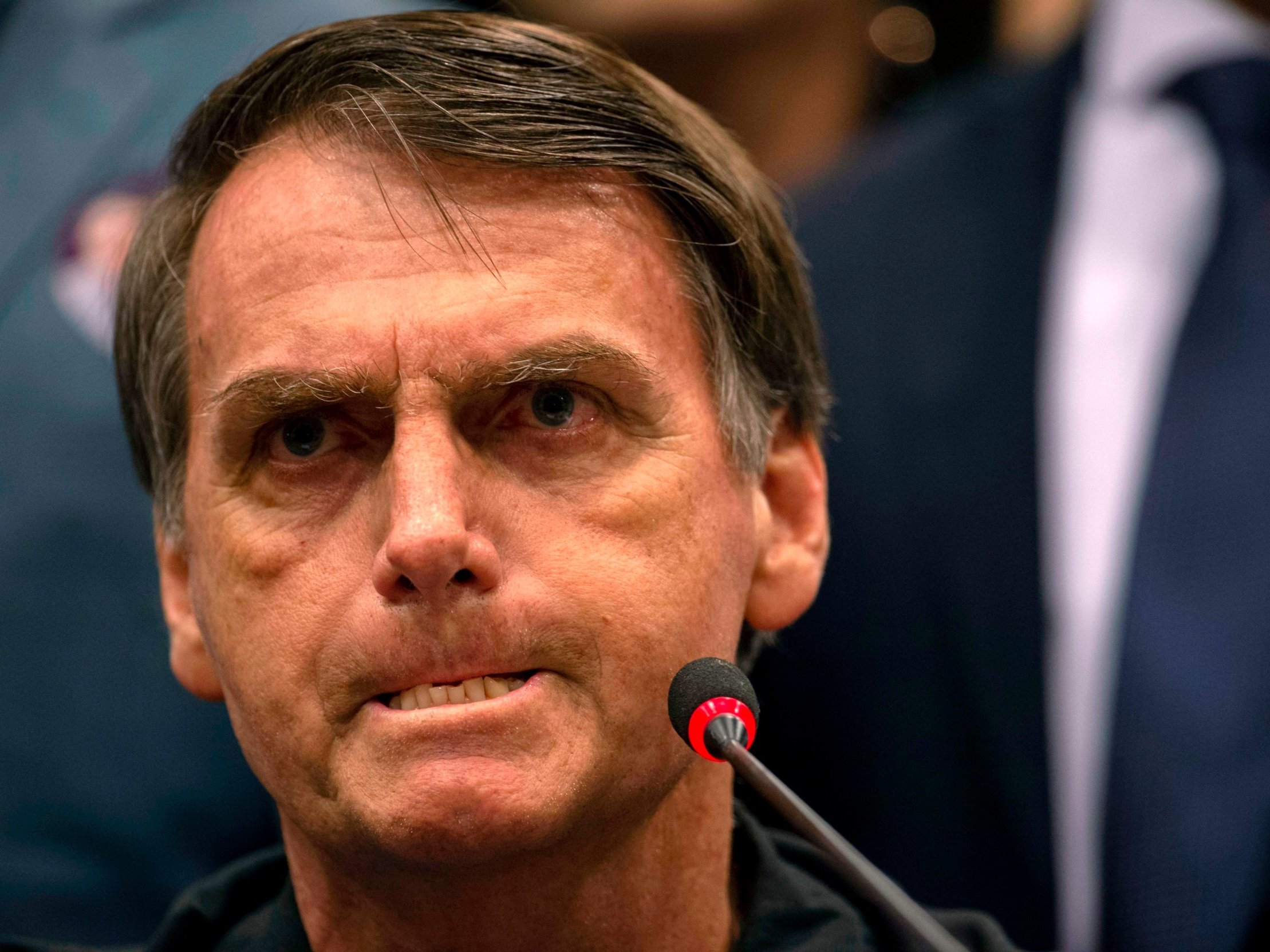The rise of populism has begun to strain liberal democracy across Western Europe and the United States. Brazil, South America’s largest democratic country, appears, also, to be falling for a populist’s allure. Jair Bolsonaro, a man described as “Trump on steroids”, looks poised to become its next president. Yet, what distinguishes this far-right populist from any of his contemporaries is the very credible threat he poses to the system of democracy itself.
When Brazil went to the polls last week for the first round of its elections, Bolsonaro emphatically saw off his closest challenger, Fernando Haddad of the left-wing Worker’s Party. He gained 46% of the total vote in spite of being hospital stricken for the final three weeks of the campaign – he had received a punctured liver as a result of a near-fatal stab wound sustained during a rally. In Brazil, 50% of the vote is required to win outright, so a second-round runoff between Bolsonaro and Haddad will take place at the end of the month. Despite lifting millions out of poverty and presiding over unprecedented economic growth, the Worker’s Party now struggles for legitimacy following the country’s descent into recession and multiple charges of corruption – its figurehead and former president “Lula” currently languishes in prison while his successor, Dilma Rosusseff was impeached in 2016. Bolsonaro’s rise to power appears, seemingly, unassailable.
The hateful nature of his discourse is truly startling – he wears his homophobia and misogyny as badges of honor. Bolsonaro, an evangelical Christian, explained that he would rather have one of his sons die in an accident than have him date another man. After having four sons, he claimed to have conceived his daughter in a “moment of weakness”. Most infamously, he told a female representative in Brazil’s Congress that, “I’m not going to rape you, because you’re very ugly”. His willingness to “other” already persecuted groups knows no bounds. He has denigrated the lives of Brazil’s indigenous peoples, making the incendiary assertion that, what they really want is “electricity, television, blonde girlfriends and the internet.” Despite this ugly and bigoted rhetoric, his supporters celebrate him for daring to speak the truth.
The invocation of a glorious imagined past; a time of milk and honey, is a standard trope for populist leaders. However, the period that Bolsonaro harkens back to, is the military dictatorship that blighted Brazil from 1964 to 1985. Under this repressive regime, political dissidents were disappeared, death-squads ubiquitous and torture state-sanctioned. The image he has created of a new-age populist, an outsider to the fraudulent political system, one who speaks directly to his people via Facebook – his preferred platform where he has 7 million followers – is juxtaposed by his proclivity for military-style authoritarianism. He is openly pro-torture, has previously called for his opponents to be shot and accepts the death of innocent people as collateral damage to create a Brazil that matches his vision. His running mate, a retired army general, has even postulated that victory could enable a self-coup – a complete military takeover.
Bolsonaro is not analogous to populist leaders in Western Europe, comparisons with Trump are similarly misplaced, this is a man so devoid of compassion or empathy that he casually wields threats of rape and murder as rhetorical weapons. Despite his recent pledge to rule “with authority but without authoritarianism” he is a far-right demagogue that presents an existential threat to democracy. Brazil’s future is precariously balanced at the edge of the abyss.
Andrew Morris
(Image Credit: The Independent)

